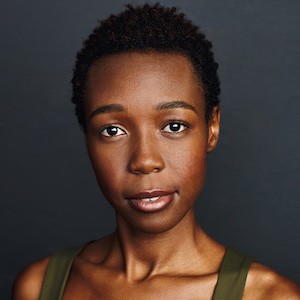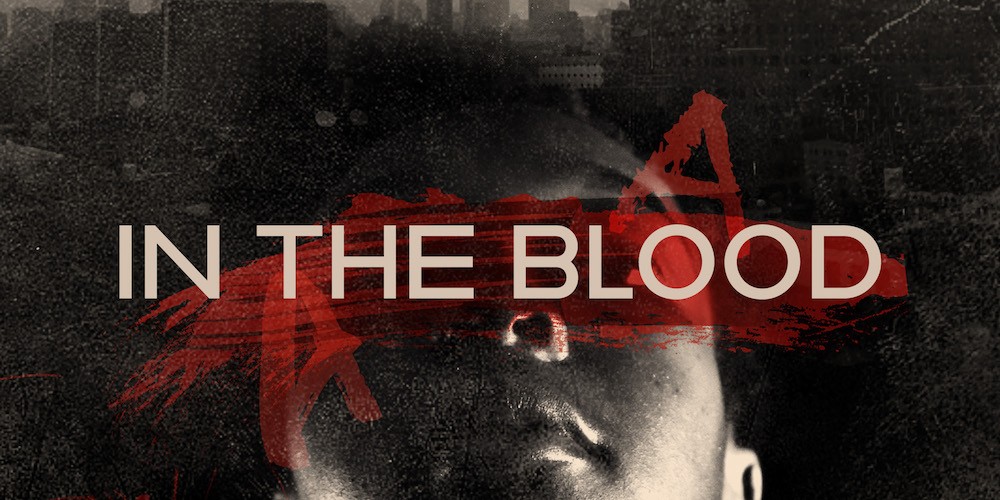Acting Thesis Interview: In the Blood
Columbia MFA Acting thesis In the Blood brings conversation around poverty, institutional racism, and motherhood into sharp focus. For the first of two thesis productions featuring Columbia MFA actors presented at Lenfest this November, the company of In the Blood examines the impact of systematic oppression on the disenfranchised communities around us today.
We sat down with cast member Owala Maima to discuss decompressing when performing heavy material, her aspirations, and In the Blood.
When you found out that you would be acting in In the Blood for your thesis piece, what steps did you take to prepare?
Owala Maima: I did a lot of people watching! I was really interested in finding Hester in the world around me. I spent time walking around Harlem and watching documentaries about the neighborhood. I was interested in the history of the “welfare queen,” and the ways in which this myth has been used to vilify and marginalize black women. And I created my own Hester playlist (which includes tracks like “Bleeding Love” and “Bitch Better Have My Money”). I also looked at where our stories intersect. In my early childhood, my parents were new immigrants and my mother in particular faced similar challenges in terms of lack of access to proper healthcare, underemployment, insecure housing, etc. The more I personalized the text, the more I could bring myself to Hester.
What has it been like to rehearse for In the Blood?
OM: It has been wild and exhausting and very fulfilling. Eugene Ma, our director, is also our clown teacher, so clowning has been a big part of our process. We did one of our early rehearsals with our clown noses and it was some of the most exploratory work I have done in grad school.
How do you decompress as an actor who performs heavy subject material?
OM: I take long walks home to let all the energy out. I also journal. I try not to hold things in; so if I’m overwhelmed, physically or emotionally, I write about it and I do some free movement (which is part of our movement training with Sita Mani). I do anything that allows whatever I’m feeling to flow. And if those things aren’t enough, I call my mom. She always grounds me!
What kind of work do you see yourself making in five years?
OM: I really want to write and or act in the genres of sci-fi, fantasy, and detective dramas for television, like, True Detective. I’ve always wanted to see more people of color in these genres, especially sci-fi. It offers us so many unique ways to tell our stories because it allows us to re-imagine ourselves and our history. It can allow us, as people of color, to be visionaries, to transcend our reality in a way. I also want to play Chadwick Boseman and Lupita Nyong'o's daughter and the first female Black Panther!
Finish this sentence, if I was not an actor I'd be…
OM: ...an anthropologist or in a similar field of academia because I’ve always been interested in understanding the meaning of “culture” and social identity, belonging, “home,” legality and borders, especially in relation to the experiences of illegalized persons, migrants, refugees.

Owala Maima is a Kenyan-Texan living in NYC. She is excited to make her Lenfest Center for the Arts debut this month. Columbia credits include Patatas Bravas, The Minister of Loneliness and Most Unwanted Play. She would like to dedicate this performance to her late father, Moses.
Wednesday, November 6, 2019, 8:00PM
Thursday, November 7, 2019, 8:00PM
Friday, November 8, 2019, 8:00PM
Saturday, November 9, 2:00pm, 8:00pm
By Suzan-Lori Parks
Directed by Eugene Ma
The locale is here. The time is now. The impoverished Hester Le Negrita is forced to raise her five children on her own in a city and system that is not built to support her. As her life grows uneasier, Hester finds herself turning to those who she trusts most: former lovers...friends...authorities. Read More.
